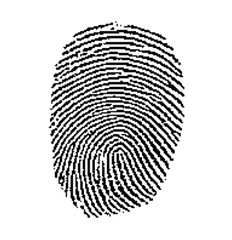Three reasons to tag MBID
July 03, 2012 in tags by Dan Gravell

MBIDs (MusicBrainz IDentifiers) identify musical albums, artists, record labels and more. MBIDs are a well-agreed standard for identifying music and can be stored inside your music files, making it easy to query musical information from various online sources. That's the theory, but what's the practical use of MBIDs?
First, what's an MBID? An MBID is a unique identifier for a musical entity. Those are two important concepts. First, the MBID is unique, so it disambiguates between entities of the same name, for example Come Together by The Beatles and Come Together by Spiritualized. Secondly, MBIDs exist for different entity types in music. MBIDs exist for albums, artists, tracks, record labels and more.
Put another way, MBIDs are to music what ISBNs are to books only much further reaching.
An MBID itself is a five part seemingly random string of alphanumeric characters. For example, here's the MBID for the band Ramones:
d6ed7887-a401-47a8-893c-34b967444d26
As I said... seemingly random. It looks like one of those annoying product keys you have to type in to Microsoft products to activate them. There's nothing to identify Ramones from that string in isolation. However, it is unique and that's important. MBIDs look the same whether we are discussing artists, albums or whatever.
The fact that the string is textual and relatively short means that MBIDs can be tagged inside your music files alongside other tags such as album name, artist name and so on. Why would you want to do this? Why is this useful? What practical applications can tagging MBIDs have? Well here are three...
1. Rich, realtime data
That sounds like the tagline to a coffee advert...
While MusicBrainz are the instigators of the MBID concept, other media companies have adopted MBIDs and include them in their own output. For example, the BBC uses MBIDs in their URLs; the Flaming Lips can be found at http://www.bbc.co.uk/music/artists/1f43d76f-8edf-44f6-aaf1-b65f05ad9402. The Guardian also uses MBIDs; their reviews for Hot Chip's In Our Heads can be found at http://www.guardian.co.uk/music/album/f2ff04ec-0e7f-4c3c-bee4-ccb32a597f2c.
The power here is in the standardisation of musical entity identification. A bit of a mouthful that; but I basically mean that if all media outlets agree on how albums are identified it becomes easy to query, accurately, their information. This opens the door for all sorts of software and websites capable of displaying information about your music, just by using the MBID tagged inside your music files. By taking this MBID not only can detailed, objective information be pulled from MusicBrainz but also the latest news and album reviews from the likes of the BBC and The Guardian.
It goes further... Last.FM are another service to integrate MBIDs into their data feeds. This opens up information about upcoming gigs and appearances and more data aside.
Also important is the power of relationships between MBIDs. It's easy if the album you are listening to is uniquely identified to find out, accurately, the artist responsible for the release, other recordings and so on. A whole world of musical information is opened up.
2. Help taggers do their job
Auto tagging taggers identify music in different ways so that additional metadata can be tagged. Unfortunately, identifying albums (for example) by simply the existing album and artist names can be error prone.
First there's the chance that the existing album and artist names are not canonical and so positive matches are not returned. MBIDs help with that because they either exist or they don't. They also don't change. So querying MusicBrainz, say, for metadata with an extant valid MBID will bring back the data correctly. There's no need to worry about disc number artifacts in album names, for example.
Second there's the arguably worse prospect of false positives. There are a lot of albums called Greatest Hits. If software is a little sloppy about querying music information sources for this data, you might receive data for the wrong album, then have to undo the change. MBIDs are unique, so there's no ambiguity as to which album is meant.
Both these benefits mean that music taggers are better able to do their job; that of furnishing your music files with useful metadata!
3. Affords tagging flexibility
Generally speaking your tagging should reflect the canonical names for album, artists and so on. However, in some cases diverging from canonical forms are inevitable. Depending on the constraints of your music player, you may have to format tags in a certain way. For example, if your music player does not support DISCNUMBER, you may have to add disc number artifacts ("Disc 2", "Disc A") to album names so that albums play in their proper order.
If you do change these album names then your tags become more ambiguous. The ability to link to data available online, or populate new metadata from online database is lessened because there's no way to uniquely identify your music.
If you have MBIDs you can, in theory, name albums how you want. The MBID will always identify the album and can be used to lookup information regardless of the album name.
Which applications use MBID?
If you do have MBID tags, which applications use them?
MusicBrainz maintain their own list of MusicBrainz enabled applications. Amongst them are popular music players such as foobar2000, Songbird and Amarok.
The next question is: how to get MBIDs into your music files in the first place? Well, I've written a tutorial using Picard. Also take a look at Jaikoz as another tagger that will populate MBID information.
Thanks to blvesboy for the image above.

